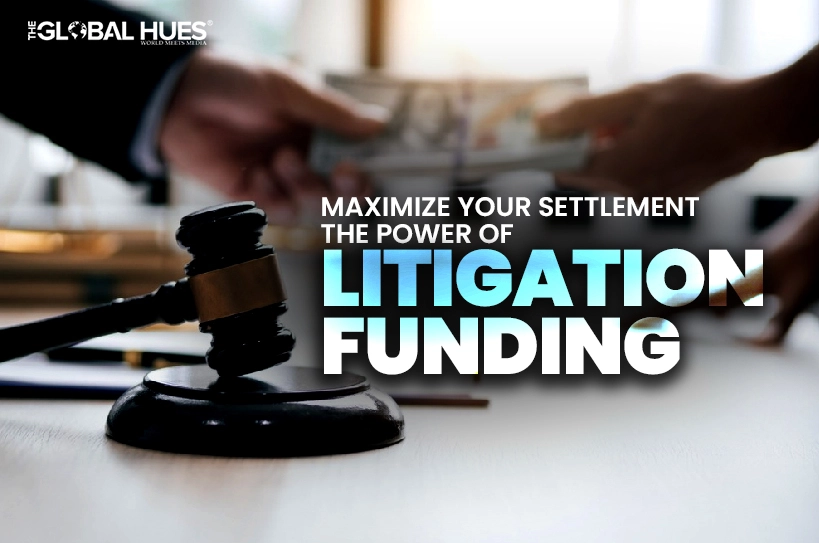Envision this: It is a David versus Goliath setting and a court room is set up to play the drama. A person who has a right reason, but quite limited resources, is one side. On the other side, there stands a large corporation with an apparently unlimited amount of money. The scales of justice, though they don’t have eyes, very often stand in favor of those who can bear the cost of long-lasting legal battles. But what if David were to possess a weapon that nobody knew about? The name of the game is litigation financing, the financing that changes the market and provides the poor with the means to succeed in their disputes. The judge perceives it not only as a penalty for the opponent, but also a total inversion of the field of Ares in the court halls worldwide.
Understanding Litigation Funding
Litigation financing, in another name, is legal funding or third party support from a funder who gives financial assistance to a litigant in return for a share of the judgment or the settlement. The presence of this scheme means that there are plaintiffs who can try their causes without paying the initial legal costs and fees.
The idea has been there for a while, but it has become very popular in recent years. As legal disputes grow more complicated and costly, litigants become increasingly dependent on litigation financing as a major tool to the success of their causes without the financial means to fight to the end.
The Benefits of Litigation Funding
The benefits of legal funding range not just from a source of money. Here are the main advantages:
- Access to Justice: Persons and enterprises, due to the lack of money, have an opportunity to sue a company, thus organizations fulfill the rights of invalid claims.
- Risk Mitigation: Plaintiff will not be exposed to all of the demand risks.
- Improved Case Management: With economic squeezes lessened, lawyers can take up the merits of the case only.
- Leveling the Playing Field: This assures that the match becomes fair between the parties of equal resources donors and well-endowed defendants.
- Objective Case Evaluation: Investors acquire accurate details through the assessing of the cases, which contains the strong and weak points seriously done by the experts. Thus, the evaluator can support as a detached third person.
How Litigation Funding Works
The process of getting a litigation fund normally consists of the following steps:
- Case Evaluation: The funder analysis of the case merits from different angles, including credibility of the case past performance and potential settlement value.
- Due Diligence: A comprehensive investigation of the case details, including financial records and legal documents.
- Funding Agreement: Assuming approval, the investor and plaintiff will enter into a contract that specifies the terms of their relationship.
- Disbursement of Funds: The funder makes the fund available in the agreed amounts mostly progressively according to the case stages.
- Case Resolution: In case the lawsuit is successful, the funder is given the percentage of settlement or judgment as was agreed between the funder and the plaintiff.
It’s necessary to be aware that a feature of litigation funding is a combination of two structures to wit it is non-recourse meaning that if the legal process is not successful, the plaintiff does not have a legal obligation to pay back the money to the lender.
Types of Cases Suitable for Litigation Funding
Although a wide range of legal disputes could benefit from a litigation finance model, some types of cases are especially good candidates for this funding model:
- Civil Litigation: These might be the contract issue, infringement of intellectual property, and counter suing lawsuits.
- Traits of an organization: They are a group of employees who are unable to pay the high costs alone.
- Overtime Arbitration: Arbitration cases, most of which have intercontinental implications and a lot at stake, frequently feature a high level of difficultness.
- Whistleblower Cases: Saving people who inform the public’s opinion about a company’s illicit activity.
- Personal Injury Claims: (Especially when far-reaching damage or a clear liability appears) like the personal injury cases are among the demanded areas of your practice.
The Impact on Settlement Negotiations
Among the many benefits of litigation funding is its significant effect on settlement negotiations. Defendants usually take advantage of the burdensome fiscal position of the plaintiffs making them agree to the unfavorable settlement deal. Litigation funding provides:
- Chronic vitality: The capacity to finish a case adds to the list of strong points alongside the financial factor.
- Negotiating Leverage: Defendants are well aware that the plaintiff can have a trial if he decides to use his means.
- Focus on Merit: An argument is on the solid sides rather than the financial side of the plaintiff.
- Higher Settlements: A combination of these factors can often translate to more favorable terms of the settlements obtained.
Ethical Considerations and Criticisms
While litigation funding brings a lot of advantages with it, people still express their doubts and concerns. What they usually include are:
- Conflict of Interest: There are query marks over who is picking the lawsuit strategy – the plaintiff or the funder.
- More Lawsuits: There are fears that the popularity of this funding will result in a high number of cases.
- The Issue of Transparency: There are calls for there to be transparency in the disclosure of the agreements made between the court and the parties involved in the case.
- Regulation: The industry may still be in its outset; different regulatory requirements are applied and exercised.
However, advocates argue that the benefits of access to justice resulting from litigation funding exceed these problems. The government is now planning to make legislation with clear guidelines to counter such ethical issues.
The Future of Litigation Funding
Legal funding is about to become one of the key innovations in the legal sphere due to the changes in the legal industry. Some of the trends to expect are:
- New Advancements in Different Markets: Litigation financing will gain wider acclaim in the developing world and new sectors of the legal industry.
- Technological Involvement: Evidence from AI and data analysis suggests that the quality of the case evaluation stage will significantly improve alongside the decision-making process for funding.
- Portfolio Management: This is a situation where the funder invests in various cases for one client or one law firm.
- Government Regulation: The birth of comprehensive legal frameworks and agreements to regulate all the funding practices will be the paramount concern.
Conclusion
Litigation funding has become a force to reckon with regarding justice delivery as it offers support to those individuals who could have been excluded from the legal landscape due to financial problems. Furthermore, the provision of funds to enforce the litigation processes to a point of conclusion confirms that the execution of the case on merit bases and not on the ability of the purse is thus guaranteed. The legal industry, with the progress it has already made and is yet to make, is thus set to witness the period during which litigation finance will become a major player in the advanced legal landscape where David will truly face Goliath.
(DISCLAIMER: The information in this article does not necessarily reflect the views of The Global Hues. We make no representation or warranty of any kind, express or implied, regarding the accuracy, adequacy, validity, reliability, availability or completeness of any information in this article.)




